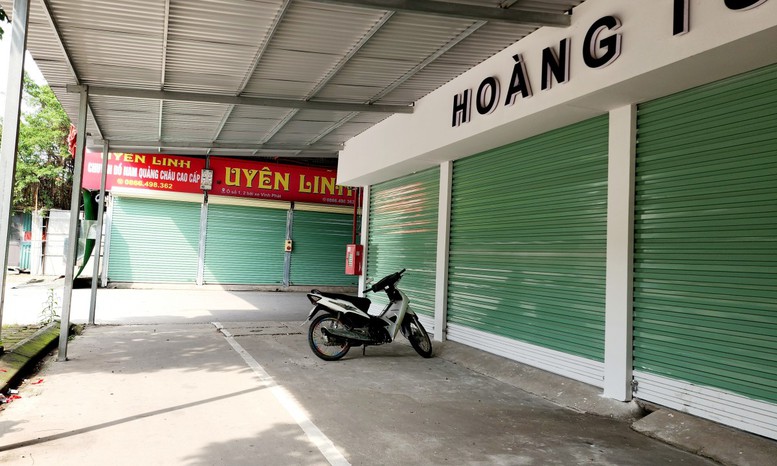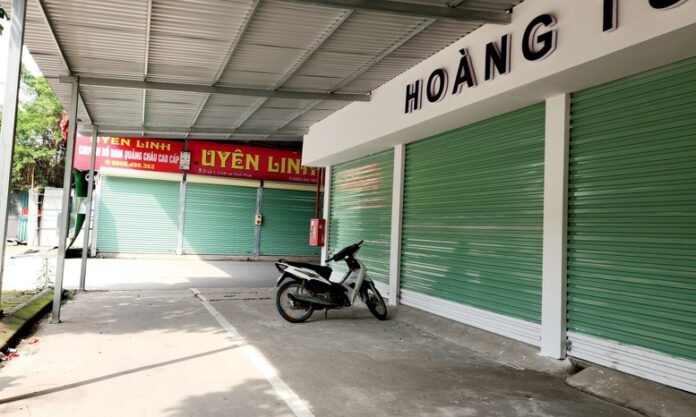
Over 5,500 shops, mostly selling food, supplements, cosmetics, and household goods, have closed down according to statistics. – Illustrated image
According to Mr. Duong, during the month-long campaign against smuggling, commercial fraud, and counterfeit goods, local authorities and functional forces nationwide conducted inspections and controls. Local reports indicated that many shops and businesses on traditional streets and markets had closed down. Statistics show that over 5,500 shops have shut their doors, mostly selling food, dietary supplements, cosmetics, and household goods.
Mr. Duong identified five main reasons for this phenomenon.
Firstly, traditional business models are no longer effective due to the robust growth of e-commerce, resulting in unmet business goals and expectations.
Secondly, some traders are concerned about the recent crackdown on commercial fraud and the determination of functional forces to eradicate smuggling and counterfeit goods. These traders may not meet legal requirements regarding procedures and invoices.
Thirdly, tax-related issues have also influenced the decision to temporarily close shops during this period.
Fourthly, a delay in adapting to new business models, such as a lack of focus on e-commerce, service quality improvement, or product diversification, has been observed among some traders. Additionally, some shops are undergoing renovations or relocating to new premises.
At the press conference, Deputy Minister of Industry and Trade Nguyen Sinh Nhat Tan shared that various forces joined the recent campaign against counterfeit and infringing goods, which lasted from May 15 to June 15. This concerted effort has significantly contributed to restoring consumer confidence. The Ministry aims to continue fostering trust among consumers and producers, encouraging the latter to confidently manufacture and trade high-quality products, thereby driving the fight against illicit goods.
Tracing the origin of goods through seller identification
At the event, Hoang Ninh, Deputy Director of the Department of E-Commerce and Digital Economy (Ministry of Industry and Trade), asserted that not all products on e-commerce platforms are counterfeit. The Ministry has been working closely with these platforms to remove infringing items, with over 33,000 products and more than 11,000 vendors addressed in the first half of 2025.
The upcoming Electronic Commerce Law is expected to include provisions for seller identification, enabling source tracing, and consumer protection. This will prevent sellers from evading responsibility by constantly changing their online storefronts.
To combat counterfeit and infringing goods, the Ministry will implement four key solutions: improving the legal framework, employing new technologies (AI, blockchain) for product tracing and authentication, raising public awareness to identify counterfeits online, and strengthening bilateral and multilateral cooperation to address cross-border violations. Additionally, inter-agency collaboration is vital to stemming illicit goods at their source.
Deputy Minister Nguyen Sinh Nhat Tan emphasized the responsibility of e-commerce platform owners to promptly collaborate with market management forces in handling reported violations. Quick response measures include removing infringing listings or even expelling sellers from the platform to prevent them from re-offending under new identities.









































